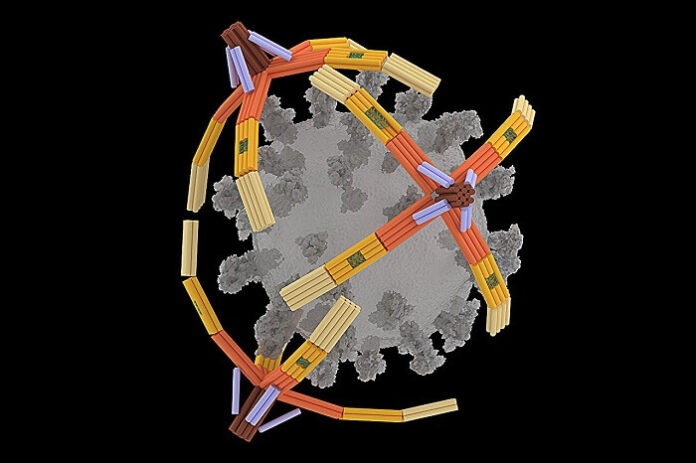

A groundbreaking DNA nanotechnology, dubbed the “NanoGripper,” has been developed by researchers at the University of Illinois Urbana-Champaign to detect and block the virus that causes COVID-19. This tiny, four-fingered device, created from a single strand of DNA, can rapidly and sensitively detect the virus, with potential applications for diagnostics, preventive medicine, and targeted drug delivery.
Led by Professor Xing Wang, the study, published in Science Robotics, details the NanoGripper’s innovative design inspired by human hands and bird claws. Each finger has three joints, allowing it to bend and grasp targets like the COVID-19 virus’s spike protein. The NanoGripper uses DNA aptamers for precision targeting and can attach to surfaces for applications like biosensing or drug transport.
In collaboration with Illinois electrical engineering professor Brian Cunningham, the team integrated the NanoGripper with a photonic crystal sensor platform to create a rapid COVID-19 test. This 30-minute test matches the sensitivity of gold-standard qPCR tests by detecting intact viral particles directly, using fluorescence triggered by the NanoGripper’s grasp.
Beyond diagnostics, the NanoGripper demonstrated potential in preventive medicine. When introduced into cell cultures, it successfully blocked COVID-19 viruses from infecting cells by wrapping around their spike proteins. Researchers suggest it could be developed into an antiviral nasal spray to prevent respiratory infections like COVID-19 or influenza.
As reported by medicalxpress, the NanoGripper could also be adapted to target other viruses, such as HIV or hepatitis B, or to deliver cancer therapies. “The potential applications for cancer treatment and diagnostics highlight the power of soft nanorobotics,” said Wang, emphasizing the need for further testing to advance its biomedical uses.






















